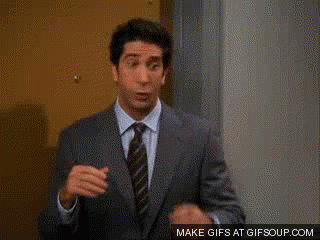I’ve always found it incredibly uncomfortable to brag, boast, or talk up myself. It’s something that I had been coached not to do, until I had to prepare for college and job interviews the past two years. With interviews, there are so many unknowns – the interviewer, the questions, the environment – that it feels impossible to prepare.
When I applied for my first job, I was so nervous. It was at the local library, a place I had been volunteering for year, and I wanted to step up and try for a paid shelving position. I had a friend that worked in the same job there, so I knew it was low-stress. It was the sort of job that you could wear whatever you want and listen to music on earbuds as you worked, and had relatively flexible hours. In short, the perfect high school job.
In preparation for the interview, I looked up practice questions online and spoke to my reflection, thinking about eye contact, body language, and tone (Tip #1: Scripps CP&R offers mock interviews http://www.scrippscollege.edu/careerplanning). Personally, I know I don’t always sit very still, so I tried to think about that as I practiced. (Anyone else a hand talker?)
Finally, the interview day rolled around, and I was still nervous, but a healthy amount so. I knew that I had done what I could to prepare, and I just had to get dressed and go. I knew that my work ‘uniform’ would just be street clothes and a name tag if I were hired, but I still dressed up in order to give a good first impression (Tip #2: Dress or overdress the part for the interview, aka always dress nicely)
When I got to the interview, I shook my interviewers’ hands (Tip #3: Have a firm handshake, not a limp hand or an aggressive grip) before we began to chat. I answered their questions honestly (Tip #4: Be real with your interviews, but also remember your audience) and worked in informational nuggets about my related experience and made sure to make myself shine (Tip #5: Show off yourself and why you’d be good at the position, but also try not to brag).
At the end of the interview, I shook hands with my interviewers one last time and thanked them for their time. Afterward, I sent an email to follow up, nothing long, just reiterating my thanks and saying that I was looking forward to hearing back (Tip #6: ALWAYS say thank you, it shows your interest, and it’s a nice thing to do. If you send an email, keep it simple).
After what felt like years of waiting, I did hear back with a job offer from the library. I responded right away to confirm my interest and subsequently celebrated the good news with my family (Tip #7: Respond promptly whether or not you get the job, thanking the person for the offer/their time).
Funny enough, after all of that, I found myself working a different job my senior year. The library position fell through because of conflict of interest problems – as a member of the Library Board I couldn’t work at the library. I interviewed at Hy-Vee, a Midwestern grocery store chain (“Where there’s a helpful smile in every aisle”), as a prospective Courtesy Clerk (aka cart pusher and grocery bagger) and was hired as a worker in the floral department. Even though I didn’t end up with my first choice of job, I ended up somewhere where I was still very happy (Tip #8: Be optimistic). My coworkers are fantastic and fun to talk with, my managers are nice, and I’m surrounded by flowers (as well as Italian and Chinese food – we’re next to those departments) every time I work. It could easily be worse.



